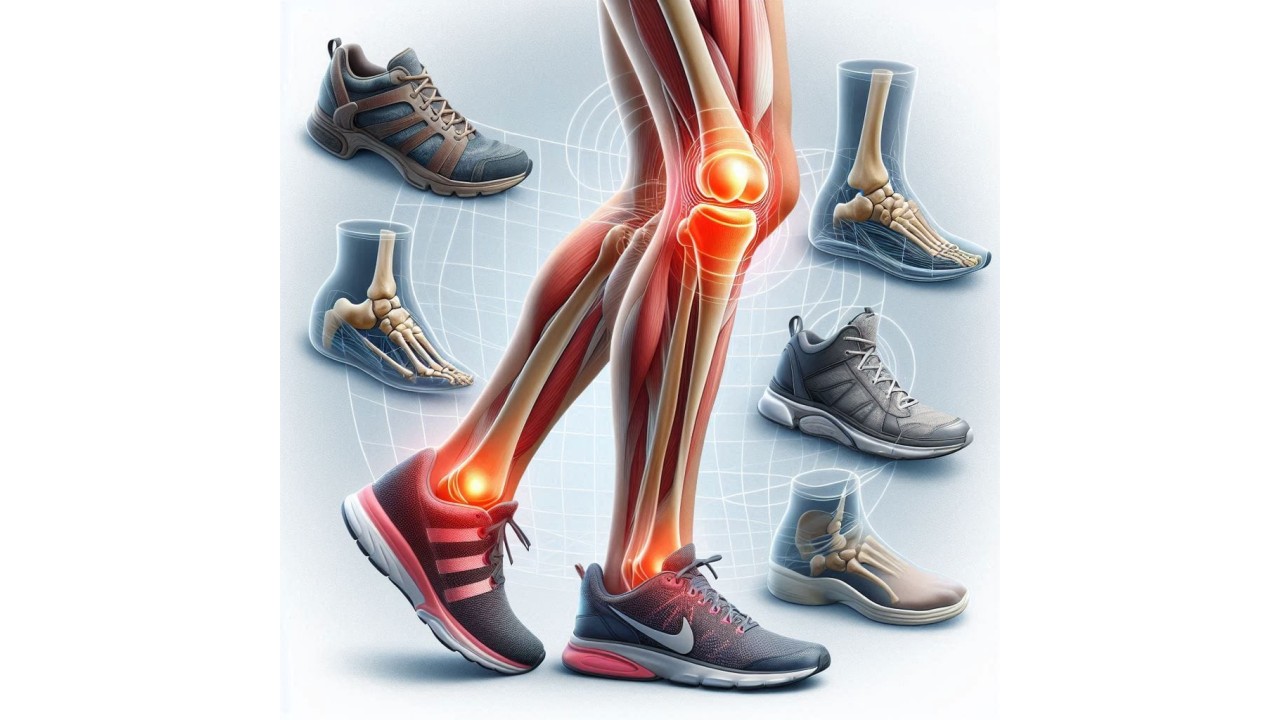Ever coming down the stairs feels like a trek down Mount Everest for your knees? You're not alone. Knee pain is a frustratingly common issue, affecting millions worldwide.
But what if the culprit isn't just age or injury? A new study sheds light on a surprising factor that could be contributing to your knee woes: your shoes!
That's right, the very footwear you rely on for support might be silently wreaking havoc on your joints.
Know your Knees
Our knees are the workhorses of our lower body. These modified hinge joints allow us to bend, straighten, and even rotate our legs, making activities like walking, standing, and changing direction possible.
The knee joint is a complex structure involving three bones (femur, tibia, and patella) connected by a network of ligaments, muscles, and tendons. Cartilage cushions the space between these bones, allowing for smooth movement.
However, this intricate design also makes knees vulnerable. The heavy reliance on connective tissue for support means that overuse or high-impact activities can lead to injuries like ligament sprains or cartilage damage.
Additionally, as weight-bearing joints, knees constantly support our upper body weight. If other joints in the leg and foot, like the ankles or hips, aren't functioning optimally, the extra stress can transfer to the knees, causing pain. In short, the very structure and function of knees put them at a higher risk for pain and injury.
What Causes Knee Pain
Osteoarthritis is a common culprit behind knee pain. It causes the cartilage in your knee joint to thin and the surfaces of the joint to become rougher.
Imagine your knee joint like a smooth, gliding door – with osteoarthritis, that smooth surface becomes worn and uneven. This means that the knee doesn't move as smoothly as it should, and it might feel painful and stiff.
While the exact cause of osteoarthritis isn't fully understood, factors like age, weight, and previous injuries can all play a role. Interestingly, research is now exploring how the shoes we choose might also influence the development and progression of this condition.
Study shows cushioned shoes may ease knee osteoarthritis pain
One such study, published in the National Library of Medicine by Schwartz et al. (2023) [3], investigated the impact of cushioned footwear specifically on individuals with knee osteoarthritis.
This study compared two groups: one wearing cushioned athletic shoes and another wearing similar shoes without cushioning. After three months, the group wearing cushioned shoes reported significant reductions in knee pain (measured by the WOMAC index) and improved functionality compared to the control group.
Interestingly, both groups showed increased walking speed and stride rate, but the cushioned shoes offered the additional benefit of pain relief and improved daily activities. This suggests that cushioning in footwear might play a crucial role in managing knee pain for those with osteoarthritis.
From Shock Absorbers to Alignment: How Shoes Protect Your Knees
The arch of your foot acts like a natural shock absorber, distributing your weight evenly during activities. Shoes with good arch support mimic this function, preventing excessive pressure points that can strain the knee joint.
Cushioning further absorbs impact, particularly during activities like walking or running. This reduces the force transmitted up your leg, protecting your knees from repetitive stress.
Worn-out shoes, however, lose their supportive structure and cushioning ability. This can lead to imbalances and instability as your foot rolls inward (overpronation) or outward (supination).
This improper alignment can affect your entire leg posture, putting undue stress on your knees and potentially leading to pain or injury.
Therefore, investing in the best running shoes with proper arch support and adequate cushioning is crucial for maintaining healthy knees, especially during activities that strain your joints.
Selecting the Right Footwear
Selecting the right footwear is crucial in managing knee pain. While a low-heeled (under 1 inch) and flexible shoe that mimics natural foot movement might be ideal for

